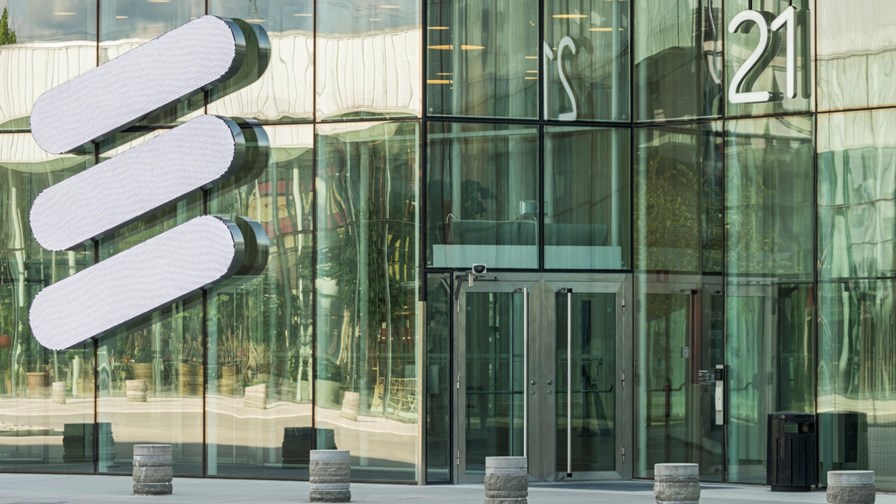
Ericsson’s headquarters in Kista, Sweden.
- Ericsson joins the Telecom Infra Project (TIP)
- The RAN equipment market continues to shrink
- Veon grows again in Q3
In today’s industry news roundup: Ericsson joins industry body TIP as it embraces open networks; the RAN sector is still in decline, finds Dell’Oro; Veon reports a significant increase in revenues in the third quarter; and much more!
Ericsson has joined the Telecom Infra Project (TIP), the industry body that held its annual event (Fyuz) in Dublin 11-13 November. There was no official announcement as such, but Ericsson essentially confirmed it had joined during one of its many presentations in Dublin. Why has Ericsson joined TIP, which is focused on the development of open, disaggregated network systems and blueprints? Well, the Swedish vendor is really pushing itself as a company that has revamped its radio access network (RAN) technology and interfaces to embrace multivendor deployments, though there is still a great deal of scepticism in the market about this, despite Ericsson’s major Open RAN contract win at AT&T, which was announced at the end of 2023. Joining TIP enables Ericsson to wear the open networking badge, so to speak. In addition, TIP recently announced Rob Soni, VP of RAN technology at AT&T, as its new chairman, so it would be seen as poor form for Ericsson to not be supporting its main Open RAN customer in its endeavours. More importantly, though, having Ericsson join as a member is a real boost to TIP, which needs all the support it can get now that it isn’t being bankrolled by Meta, as Soni mentioned during his opening Fyuz address in Dublin (see our video blog report on that here). TIP is recognised as an organisation that is doing useful work but it can only do that if it has ongoing industry support – a few more major names on the member list wouldn’t go amiss. In the meantime, check out our interview with Soni from the Fyuz show floor here and our interview with NTT Docomo’s Open RAN strategist Sadayuki Abeta, also from Fyuz, here. Watch out for further interviews from the Dublin event in the coming days.
Still no cheery news on the radio access network (RAN) equipment market, where a prolonged dip in investment has hammered sales at the likes of Ericsson and Nokia over the past 12 to 18 months. Analyst firm Dell’Oro Group estimates that the value of the market (including baseband plus radio hardware and software) dipped again in the third quarter of this year, marking six consecutive quarters of year-on-year declines, and that the value of the market during the first nine months of 2024 is down by between 10% and 20% compared with the same period in 2023 (when 5G rollouts in India were still propping up the RAN technology sector). The analyst firm didn’t include any financial numbers in its press release, but TelecomTV’s back-of-the-envelope calculations would put the value of the market at about $32bn if the sector shrinks by as much as 20% this year. “The problem is not just lower capex levels,” noted Stefan Pongratz, VP of RAN and telecom capex research at Dell’Oro. “Operators are also adjusting the proportion of the capex allocated for RAN,” he added. Chinese vendor Huawei continues to be the global market leader (thanks to its domestic revenues), followed by Ericsson, Nokia, ZTE and Samsung. The Dell’Oro team expects the market to show some slight year-on-year growth in 2025, but that doesn’t sound like it’s going to get the vendors out of a hole any time soon.
International network operator Veon, which is under pressure from some investors, reported a 9.8% year-on-year increase in revenues for the third-quarter to just over $1bn, but a 1.5% decrease in earnings before interest, taxes, depreciation and amortisation (EBITDA) to $438m. CEO Kaan Terzioğlu noted: “Despite the impact of the civil unrest in Bangladesh, the sale of the TNS+ infrastructure asset in Kazakhstan, and with current currency levels in mind, we expect to finish the year with solid revenue growth of 8% to 10% in US dollar terms. This achievement highlights our rapid expansion and innovation, supported by 8 million new 4G subscribers and 103 million digital service users. Direct digital revenues, now comprising 12% of our total revenue for the quarter, grew by 35% year over year. These gains, stemming from digital financial services, entertainment, healthcare, advertising and super-apps, are not only enhancing user engagement and retention but also significantly boosting our ARPU [average revenue per user] and contributing directly to our top-line growth through diverse streams like interest income, advertising revenues, subscription services, platform commissions, and pay-per-view revenues.” Read more.
Infrastructure investment firm Macquarie is reportedly looking to sell its stake in a Philippines towers firm that was only formed in September, when PhilTower and Miescor Infrastructure Development Corporation (MIDC) merged to create one of the largest independent telecom towers companies in the country. The newly formed entity (which doesn’t yet have a name) has more than 3,300 operational towers and is valued at between $700m and $800m but, according to this Bloomberg report, Macquarie is already considering offloading its stake, which is believed to be around 45%.
– The staff, TelecomTV
Email Newsletters
Sign up to receive TelecomTV's top news and videos, plus exclusive subscriber-only content direct to your inbox.




